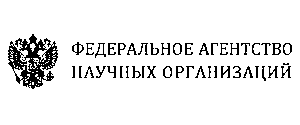| Tuesday, September 8 17:00 - 19:00 Flagman 3 | Session: Mathematics and Physics 1Mathematics and Physics |
| Chair: Dr.Sci. Andrey Sobolevski |
Ilya Vyugin, Sergey Makarychev
On the number of solutions of polynomial equation over F_p
Abstract: We present a new proof of Corvaja and Zannier an upper bound of the number of solutions (x,y) of a polynomial equation P(x,y)=0 over a field F_p, in the case, where x in g_1G, y in g_2G , g_1G, g_2G are cosets by some subgroup G of a multiplicative group F_p*. Some applications of this bound to hyperelliptic curves and additive energies are obtained.
Mark Kelbert, Pavel Mozgunov
Asymptotic analysis of the Renyi, Tsallis and Fisher entropies in a Bayesian problem
Abstract: Consider a Bayesian problem of estimating of probability of success in a series of trials with binary outcomes. We study the asymptotic behaviour of weighted differential entropy for posterior probability density function (PDF) conditional on x successes after n trials, when n to infinity. Suppose that one is interested to know whether the coin is fair or not and for large n is interested in true frequency. In other words, one wants to emphasize the parameter value p=1/2. To do so the concept of weighted differential entropy introduced in [Belis1968] is used when the frequency gamma is necessary to emphasize. It was found that the weight in suggested form does not change the asymptotic form of Shannon, Renyi, Tsallis and Fisher entropies, but change the constants. The leading term in weighted Fisher Information is changed by some constant which depend on distance between the true frequency and the value we want to emphasize.
Stanislav Kikot
The formulas of the first order which remain with minimal filtering
Abstract: В этой короткой работе мы даем полное синтаксическое описание формул первого порядка, сохраняющихся при минимальных фильтрациях с точностью до эквивалентности.
Ilya Osipov
Characterization theorems for class of finite frames of product logic KxK
Abstract: В работе рассматривается вопрос о характеризации множества формул языка первого порядка, задающих бимодальные свойства моделей, в терминах бисимуляций. При этом рассматриваются классы моделей бимодальной логики K*K -- класс моделей на шкалах-произведениях, класс всех моделей логики K*K и класс моделей с одним отношением и двуместными предикатами. В каждом из случаев оказывается возможным ограничить семантику, рассматривая только конечные модели.








